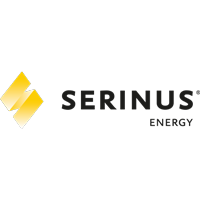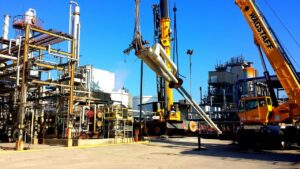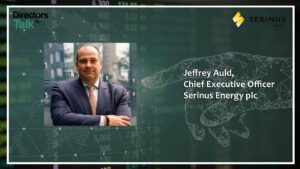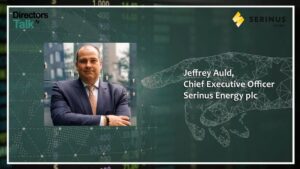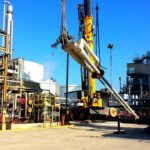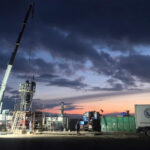Serinus Energy plc (LON: SENX) is an international oil company with operations in Romania and Tunisia. The focus of the Company is to enhance shareholder value by growing oil and gas production through the efficient allocation of capital.
Through their large and extensive land base, the Company has identified a significant future opportunity set that provides growth beyond its existing production and development projects.
ROMANIA
The Satu Mare Concession (729,000 gross acres, Serinus deemed 100% WI) is one of the largest exploration blocks in Romania, lying on a prolific oil and gas trend in the Eastern Pannonian Basin. Satu Mare possesses a wealth of different plays that are actively producing along the same trend, including: shallow amplitude-supported gas reservoirs; conventional siliciclastic oil reservoirs; and fractured-basement oil and gas reservoirs. The Moftinu gas field (discovered by Serinus in 2014 ) was brought onto production in April 2019.
TUNISIA
The Company currently holds five Tunisia concessions that comprise a diverse portfolio of development and exploration assets.
The Company currently produces oil and gas in Tunisia through its various working interests in two of the five Oil & Gas Concessions. This production can be sustained with low-risk development drilling, with significant growth opportunities over the medium to long term with high-impact near-field exploration within the Company’s additional concession areas.
The Company’s ordinary shares are listed on AIM (Symbol: SENX.LN) and the Warsaw Stock Exchange (Symbol: SEN.WP).
ISSUER: SERINUS ENERGY PLC
DESCRIPTION: ORD NPV
SEDOL: BF4N9R9
ISIN: JE00BNNMKT29
OPOL: XLON
CFICODE2015: ESVUFR
FISN: SERS ENER/NPV VTG FPD
CUSIP NUMBER: G8052E 102
CORPORATE STRATEGY
The Corporate Strategy of Serinus is focused on extracting value from the large land and resource positions that the Company currently holds in Tunisia and Romania. Projects that demonstrate attractive returns at relatively lower risk profiles will be tactically allocated capital. Our internal teams constantly review new opportunities where we can apply our competitive advantages gained from our existing portfolio.
GOALS/OBJECTIVES/CORE ACTIVITIES:
- Moftinu Gas Project in Romania: First gas was April 2019. New Exploration Program in 2022 consisting of a completed 112 km 2D Seismic Program and a multi-well exploration drilling program in the latter half of 2022
- Sabria Field Production Enhancement in Tunisia: Install artificial lift in wells to increase oil production
- Evaluate potential acquisitions inside and, if competitive, outside our core operating areas
Serinus is an oil and gas exploration, development and production company whose strategic purpose is to develop and produce natural resources. These business activities provide the energy essential to many of the processes and materials that support our daily lives but ultimately contribute to many of the environmental issues which are of concern to us today and in the future.
Climate change is an increasingly prominent issue, both globally and for our industry. The majority of our production is natural gas which we view as a transition fuel towards a low-carbon economy. Our gas production is primarily utilised in the generation of electricity and as such displaces coal in that energy mix. In all net-zero carbon scenarios oil and gas will remain essential elements of energy supplies for decades to come, our role in this process is to deliver our operations as cleanly and efficiently as possible.
Whilst extractive industries are essential to our modern way of life we are strongly aware of the wider range of responsibilities that industries such as ours have. In addition to the management and protection of the environment in those countries in which we operate we also have a clear responsibility to the welfare and the safety of our employees, our investors and stakeholders, local communities that may be impacted by our business, host governments and all of our business partners.
The COVID-19 pandemic reminds us that risk management needs to be dynamic and able to adapt to new threats and the Group quickly implemented stringent and effective protocols to protect our workforce from the risk of infection across all of its offices and operations, which included, amongst other measures, testing, on-site care and support, amended shift patterns and alternate working days. Safety of our staff and contractors remains a key concern.
Therefore, a long-term goal of the Group is to be a positive influence in the regions in which we operate through good corporate stewardship of our assets, our people and their communities. It is a key component of the ethos of Serinus that we maintain responsible and sustainable development while adhering to the highest operating standards and financial discipline. We carry out our operations in full compliance with relevant regulations and comply with all safety and environmental requirements and aim to conduct our business in an environmentally responsible manner. The Group has established an Environmental, Social and Governance (“ESG”) Committee, led by the Chief Executive Officer, supported by other key personnel, and overseen by the Board, which reviews the policies and metrics under which we operate and measure ourselves and also evaluates the environmental framework being adopted and recommended, such as that of the Taskforce on Climate-Related Financial Disclosure (“TCFD”), in order to determine how we may best comply with these evolving disclosures.
Whilst the TCFD is currently voluntary for smaller companies, we are applying governance, risk management and strategy processes to manage climate-related financial risks and develop this within our ESG strategy and integrate into the corporate strategy, growth plans, capital allocation, operations and executive management key performance indicators.
The Sustainable Development Goals (“SDGs”) as set out by the United Nations, particularly SDG 13 (Climate Action), are often referenced as reporting criteria for many energy companies. Serinus will continually evaluate at the Board level, through our ESG Committee, how this may be incorporated into our ESG reporting in an appropriate and relevant manner in the future.


